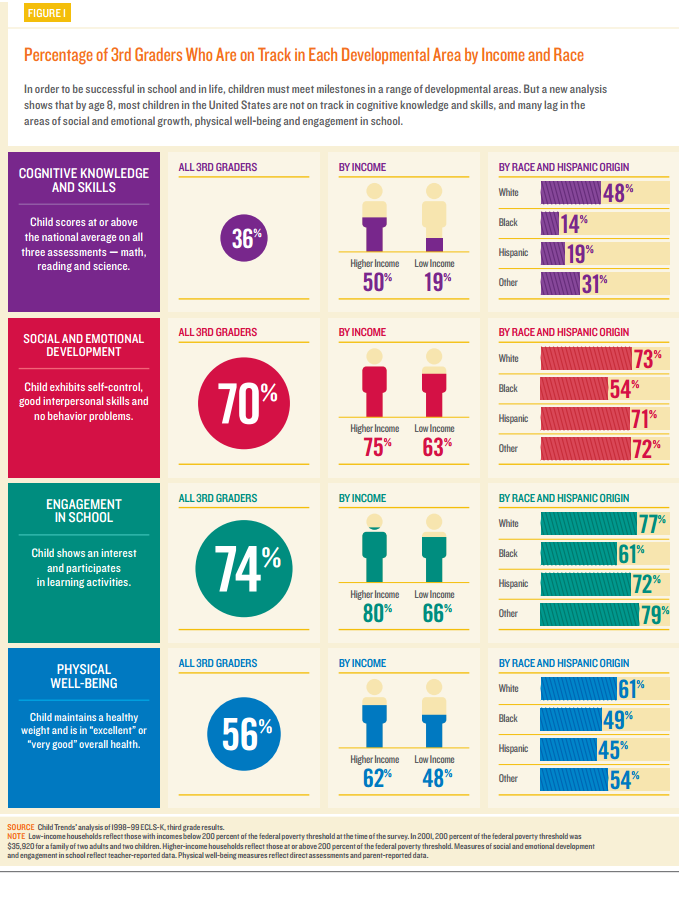From Zero to Eight
First came "Early Warning! Why Reading by the End of Third Grade Matters". This report of the Annie E. Casey Foundation made the case of how important reading is for learning. Children learn to read before the age of eight (preschool through third grade) while children read to learn after that. In a new report, "The First Eight Years", the Annie E. Casey Foundation highlights the status of third grade students in the United States. It is not pretty.
The results on cognitive knowledge and skills, and physical well-being. With only 36% scoring respectably in science. math and reading, and only 56% in "excellent" or "very good" health, it is highly likely that there is significant overlap between these groups. Children in poor health are likely to be among those not having the cognitive skills and knowledge required at age 8. Looking at income, it is apparent that children from poor families are much more likely to be behind in all areas.
It should be obvious that the above four areas are not really separate from each other. It therefore lends support to the importance of holistic development. The care of a young child must be "comprehensive and coordinated for all children from birth through age 8", is one of the strong recommendations made in the report. "Patchwork of disjointed services" do not work as well.
In early childhood education, doing something is sometimes equivalent to doing nothing. In these cases, only a comprehensive and coordinated approach works....
The results on cognitive knowledge and skills, and physical well-being. With only 36% scoring respectably in science. math and reading, and only 56% in "excellent" or "very good" health, it is highly likely that there is significant overlap between these groups. Children in poor health are likely to be among those not having the cognitive skills and knowledge required at age 8. Looking at income, it is apparent that children from poor families are much more likely to be behind in all areas.
It should be obvious that the above four areas are not really separate from each other. It therefore lends support to the importance of holistic development. The care of a young child must be "comprehensive and coordinated for all children from birth through age 8", is one of the strong recommendations made in the report. "Patchwork of disjointed services" do not work as well.
In early childhood education, doing something is sometimes equivalent to doing nothing. In these cases, only a comprehensive and coordinated approach works....

Comments
Post a Comment